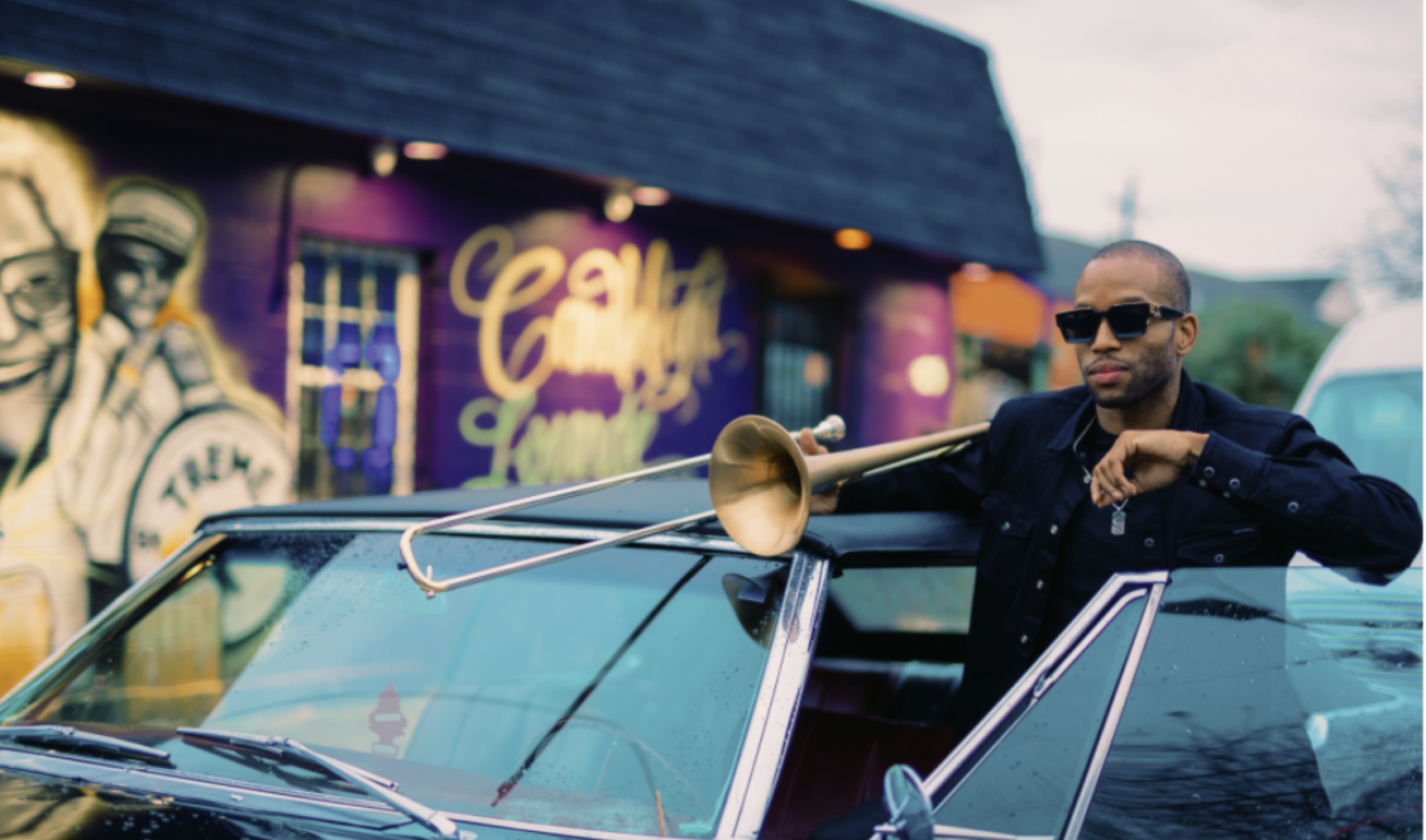Trombone Shorty Brushes Up His Old School Cred on "Symphony"

Trombone Shorty shows his roots on his new album. Is that what he should be doing?
Trombone Shorty’s last decade has been characterized by, among other things, self-assurance. Almost everything he has tried has worked. 2010’s Backatown was a solid introduction to him and Orleans Avenue as one future of New Orleans funk—one with the potential to become something more. The follow-up For True was on paper a misstep as he surrounded himself with guest stars old enough to his dad or grandfather, as if his financial and artistic future lay in the approval of Jazz Fest’s aging baby boomers. Still, the compositions and the band’s performances carried the day anyway, and with Raphael Saadiq-produced Say That to Say This, Shorty worked on better songs that relied less on the band’s power to get across. Saadiq helped Shorty’s funk rock show clear roots without hiding its place in 2013.
While these things happened in the studio, Shorty took over as the New Orleanian who closes the Acura Stage on the second Sunday of Jazz Fest and played in front of Foo Fighters at Voodoo 2015. His only flinch in that run came during the summer of 2015 when he played the main stage at Essence Festival. It’s a thankless gig for everybody but the headliner as most performers play to a half-empty dome, and because the audience’s battle cry is “old school,” artists win with songs that prompt people to sing along. In that context, songs that seemed melodic in other contexts felt like exercises in pure rhythm, and Shorty’s voice, while improving, stood out as the weakest on a stage when sandwiched between Floetry and Mary J. Blige. He had become enough of a showman to win over the crowd, but it took covers of Kool and the Gang’s “Get Down on It,” Marvin Gaye’s “Let’s Get it On,” DJ Jubilee’s “Get Ready Ready” and a guest spot from Mystikal to do it.
It’s simplistic to trace a straight, bold line between that show and Shorty’s new Parking Lot Symphony, but one seems clear at times. Strip out references to the Treme and New Orleans from the title track and it’s easy to imagine it on a Maze album. Almost half of the album has old school earmarks, including the killer couplet that opens “No Good Time”: “We drink when it’s raining / and it rains here all the time.” Producer Chris Seefried has worked with retro-R&B rock band Fitz and the Tantrums, and like Saadiq, he has an ear for how to evoke moments in R&B history, and he clearly helped Shorty find the sweet spot between classic and contemporary.
Still, Parking Lot Symphony should not be heard as any kind of capitulation to market forces. Throughout, Shorty and the band print their identity all over the proceedings. The instrumentals deliver the album’s fastballs, and the arrangements are musically crafty. His cover of Ernie K-Doe’s “Here Come the Girls” solves the problem that stumped K-Doe and Allen Toussaint. The original says everything it has to say in the first verse and chorus but continues anyway. Shorty and company clear out some of the stray sounds, make room for more low-end courtesy of Dan Oestreicher’s baritone sax, and add a solo in the back half to break up the repetition and give the song some energy as it returns to the chorus for the final times.
Most importantly, Shorty clearly has worked on his vocals. At this year’s Jazz Fest, he made his vocals an important part of the show, and he sings on the album with greater expressiveness. He’s still not Frankie Beverly, but the lyrics on Parking Lot Symphony convey emotion in addition to semantic information. Shorty sells the wonder in the title track, the sorrow in “No Good Time,” and the leer in “Here Come the Girls.”
I’d still like to hear Trombone Shorty pass tracks from the album to remix producers so that people will start to think of him in conjunction with the music that his peers listen to and dance to. After all, “old school” may fly at Essence, but they’re two words we never hear at Voodoo or Buku, nor do we hear them from Future, Yachty, Lil Uzi Vert, Chance, or anybody his peers are listening to and talking about these days. What would a trap version of Shorty song sound like? It’s an interesting thought.
That said, the choices Shorty has made so far worked for him, so it’s hard to second guess him now.






